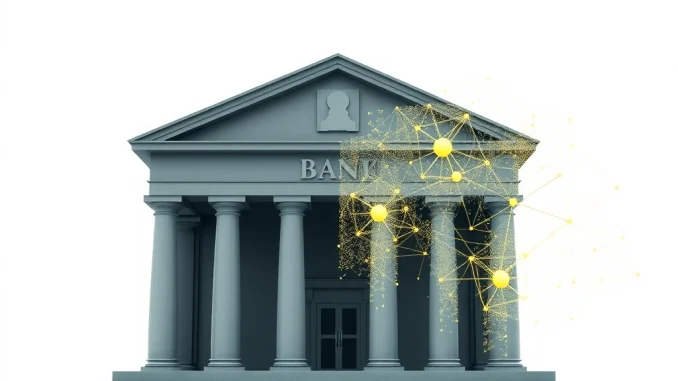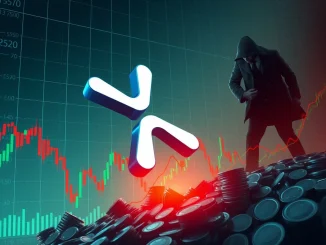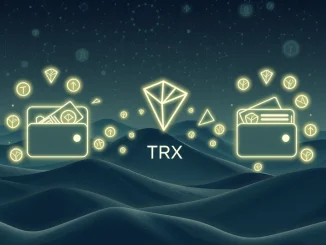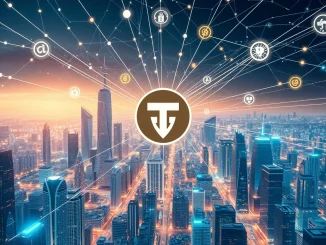
Get ready for a significant development in the world where traditional finance meets cutting-edge technology. Deutsche Bank, Germany’s largest commercial bank, is making a major move into the digital asset space, specifically focusing on asset tokenization. This initiative could reshape how financial firms manage value.
What is Deutsche Bank Doing with Asset Tokenization?
Deutsche Bank is preparing to launch a minimum viable product (MVP) of its blockchain-based platform in November 2025. This isn’t just a small experiment; it’s a key part of their ‘Dama 2’ initiative, aimed at bringing the power of blockchain technology to institutional finance.
The goal is clear: provide financial firms like asset managers and wealth advisors with a robust tokenization platform. This platform will allow them to create and manage tokenized versions of real-world assets. Think real estate, art, private equity, or even bonds and stocks, all represented as digital tokens on a blockchain.
One of the primary drivers behind this project is reducing costs. Setting up the infrastructure and hardware needed for traditional asset management can be expensive. By leveraging a shared, blockchain-based platform, Deutsche Bank aims to significantly lower these upfront expenses for companies exploring or adopting tokenization.
Why is Asset Tokenization a Big Deal for Banks?
Asset tokenization offers several potential benefits that are attractive to large financial institutions like Deutsche Bank:
- Increased Liquidity: Tokenizing illiquid assets (like real estate) can make them easier to buy and sell by dividing them into smaller, more manageable digital tokens.
- Fractional Ownership: Allows multiple investors to own a piece of a high-value asset that would otherwise be inaccessible.
- Improved Efficiency: Blockchain can automate processes like settlement and compliance, reducing manual effort and potential errors.
- Transparency: Transactions recorded on a blockchain are immutable and verifiable, increasing trust and reducing fraud risk.
- Reduced Costs: Streamlined processes and shared infrastructure can lead to lower operational expenses.
For a major player like Deutsche Bank, embracing tokenization isn’t just about innovation; it’s about staying competitive and finding new revenue streams in a rapidly evolving financial landscape driven by digital assets.
What Does an MVP Launch Mean?
Launching an MVP (Minimum Viable Product) in November 2025 indicates that Deutsche Bank plans to release a version of the platform with just enough features to be usable by early adopters. This approach allows them to:
- Gather real-world feedback from actual users (asset managers, wealth advisors).
- Test the core functionality and identify potential issues in a live environment.
- Iterate and improve the platform based on user needs before a full-scale launch.
- Demonstrate progress and capability to the market and regulators.
It’s a strategic step to ensure the platform is practical and meets the specific requirements of financial firms dealing with asset tokenization.
What Challenges Might Deutsche Bank Face?
While the potential is significant, building and launching a large-scale tokenization platform within a traditional banking framework comes with challenges:
- Regulatory Clarity: The regulatory landscape for tokenized securities and other assets is still evolving in many jurisdictions.
- Interoperability: Ensuring the platform can interact seamlessly with existing financial systems and potentially other blockchain networks.
- Security: Protecting high-value digital assets from cyber threats is paramount.
- Adoption: Convincing traditional financial firms to migrate to or use a new blockchain-based system requires significant effort and trust.
- Scalability: Ensuring the blockchain infrastructure can handle the volume and speed required for institutional transactions.
Looking Ahead: The Future of Finance and Digital Assets
Deutsche Bank’s move is part of a broader trend. Many large financial institutions are exploring or actively building infrastructure for digital assets and tokenization. This signals a growing acceptance and integration of blockchain technology into mainstream finance.
The launch of their tokenization platform MVP in November 2025 will be a key milestone to watch. It will provide concrete insights into how a major bank is tackling the complexities of tokenizing assets at scale and how it plans to leverage blockchain to create more efficient and cost-effective financial services.
This initiative underscores the transformative potential of tokenization and highlights that the future of finance will likely involve a hybrid model, combining the strengths of traditional banking with the innovation of distributed ledger technology.
In Conclusion
Deutsche Bank’s planned MVP launch of its asset tokenization platform is a significant step towards the mainstream adoption of digital assets in institutional finance. By focusing on cost reduction and providing tools for asset managers and wealth advisors, they are positioning themselves at the forefront of this evolving market. The November 2025 launch will be a crucial moment, offering a first look at how one of the world’s largest banks envisions the future of tokenized finance.



